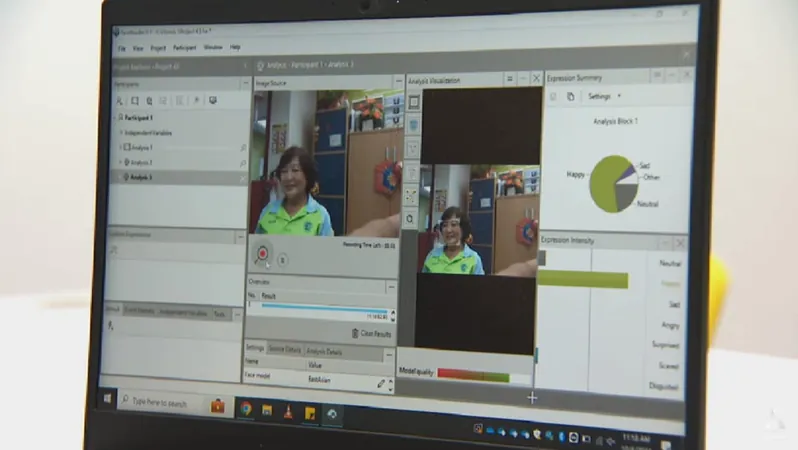
Revolutionizing Social Service: How AI is Transforming Support for Singapore's Vulnerable
2024-10-11
Author: Li
Revolutionizing Social Service: How AI is Transforming Support for Singapore's Vulnerable
In Singapore, the integration of artificial intelligence (AI) into social service agencies is a game changer, dramatically enhancing efficiency and improving patient outcomes. With AI at their disposal, these organizations can now screen over six times the number of patients each week, while also increasing staff productivity by approximately 30%. This innovative technology has proven effective in detecting issues earlier in five times more individuals, boasting an impressive accuracy rate of 90%.
However, as AI continues to reshape the landscape of social services, experts emphasize the need for stringent policies and regulations to ensure its responsible usage.
Addressing Mental Health Among Seniors
One notable application of AI can be observed at Lions Befrienders, a key social service agency that utilizes advanced AI software to assess the mental health of elderly individuals. This tool helps identify feelings of sadness or anger that might not be overtly communicated by seniors. Mr. Benjamin Yeo, the agency's director of psychosocial and integrated care, affirms the significance of this technology. “Artificial intelligence provides a glimpse into some challenges these seniors are facing, paving the way for deeper conversations and reflection about their feelings,” he explains.
Importantly, privacy remains a primary concern. Yeo assures that the software operates strictly during set sessions, with no retention of facial data or recognition information stored in any cloud systems.
Dr. Wang Yue from the Singapore University of Social Sciences highlights the obligation of AI users to safeguard against data breaches, reinforcing the necessity for comprehensive guidelines in this evolving field.
Regulating AI’s Role in Mental Health Support
AI tools such as chatbots and virtual therapists are becoming increasingly prevalent, offering 24/7 support to users and broadening access to mental health care. Nevertheless, experts, including Dr. Wang, advocate for a regulatory framework similar to that for licensed therapists and psychiatrists. "The algorithms, data used, and functionalities should be systematically monitored and certified,” she remarks, underscoring the need for an ethical standard in AI development for mental health applications.
To address these issues, various ministries and statutory bodies in Singapore are collaborating to establish a comprehensive set of guidelines that will govern AI usage in social services.
A New Frontier in AI Healthcare
In a groundbreaking advancement, Nanyang Technological University and the National Healthcare Group recently inaugurated the Centre of AI in Medicine. This facility aims to bridge innovative AI technologies to practical medical applications, focusing on pressing healthcare challenges such as elder frailty, medical imaging, cancer screening, and mental health—all crucial as Singapore's population ages.
As the quest for higher accuracy in AI technology continues, observers, including Dr. Wang, stress the importance of proactive bias testing. “Ultimately, it’s our responsibility to ensure that AI algorithms are fair and inclusive, reflecting the diverse backgrounds present in multicultural Singapore,” she states, reminding us of the societal responsibilities associated with deploying advanced technologies.
With the right measures in place, AI promises to enhance the lives of numerous individuals, making support more personalized and attuned to community needs. The future of social services in Singapore looks brighter than ever, with artificial intelligence leading the charge towards improved welfare and care.

 Brasil (PT)
Brasil (PT)
 Canada (EN)
Canada (EN)
 Chile (ES)
Chile (ES)
 España (ES)
España (ES)
 France (FR)
France (FR)
 Hong Kong (EN)
Hong Kong (EN)
 Italia (IT)
Italia (IT)
 日本 (JA)
日本 (JA)
 Magyarország (HU)
Magyarország (HU)
 Norge (NO)
Norge (NO)
 Polska (PL)
Polska (PL)
 Schweiz (DE)
Schweiz (DE)
 Singapore (EN)
Singapore (EN)
 Sverige (SV)
Sverige (SV)
 Suomi (FI)
Suomi (FI)
 Türkiye (TR)
Türkiye (TR)